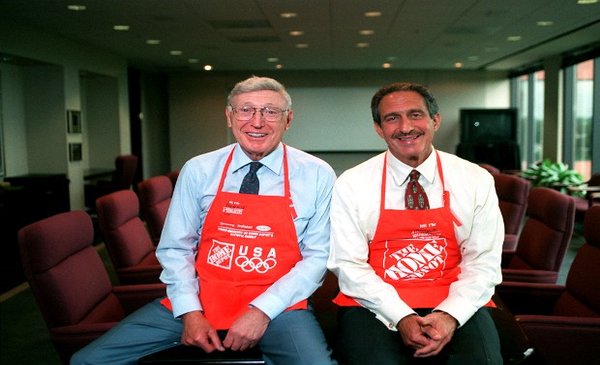On a wet and windy Manchester afternoon in 2001, Sir Roland Smith, chairman of Manchester United plc, welcomed analysts and journalists alike to Old Trafford.
He introduced chief executive Peter Kenyon and sat down. Kenyon surveyed the room. His presentation was short and consisted of a single slide that summarized the club’s fortunes: turnover up, operating profit up, dividends up. Kenyon sat down and David Gill, his deputy, rose from his chair and began a more detailed, hour-long presentation of the figures.
It was a typical presentation of preliminary results, the kind delivered by every mid-sized company once a year. Except for what happened next. Kenyon returned to the podium with a slide entitled ‘Liberating the brand’. He discussed brand extensions, co-branding, and creating brand affinity and brand loyalty. He talked with vision, ambition, and most surprising of all, he talked like someone who understood branding.
Reviewing his years as chief executive at the club it is hard not to be impressed. The foreign tours to support merchandising and the alliances forged with Nike and the New York Yankees are evidence of shrewd leadership.
But they are not the reasons that led Chelsea to make their decision to steal him from United with a £2m salary. Kenyon, unlike almost every other chief executive in the UK (and many CEO’s in the US), is brand-centric.
Most chief executives utter the usual buzzwords on cue when it comes to brands, but most do not know the first thing about them. How could they? The vast majority of British chief executives have either accounting or engineering backgrounds. Most have managed to avoid any exposure to marketing and most hope their brief tenure at the top will continue that trend. But the world of business has changed. Branding has become the central activity for every major organization. Branding drives human resources, organizational structure, new markets, alliances, corporate strategy, and the bottom line.
Much was made of the recruitment of Kenyon in the media. Many journalists saw it as the first evidence of the emergence of Chelsea as a genuine contender for United’s position in the Premiership.
But the significance of Kenyon’s move went well beyond the relatively inconsequential world of football. A new generation of chief executives is about to emerge. Their knowledge of production and accounting systems will have been learned in a matter of weeks from a course in executive education. Their knowledge of branding will have been forged from several years of direct responsibility for building, sustaining and protecting brand equity.
As the first truly brand-centric chief executive, Kenyon is very well placed. He has managed to build an amazing personal brand. Chelsea owner Roman Abramovich should be pleased with his hiring, but he must exercise caution. Football clubs may grab the headlines, but in financial terms they are relative minnows. There will be a lot of big companies looking for brand-centric chief executives over the next few years and Kenyon’s brand has yet to be fully stretched.
Courtesy of Marketing Magazine
The Blake Project Can Help: The Brand Positioning Workshop
Branding Strategy Insider is a service of The Blake Project: A strategic brand consultancy specializing in Brand Research, Brand Strategy, Brand Licensing and Brand Education





One comment
Brett Beilfuss
June 18, 2009 at 8:32 am
I agree that having an executive that is well versed in brand strategy is definitely an asset to an organization.
I would add that ensuring that the strategy includes measures to ensure that the organization remains relevant to its’ customers and fans.
My suggestion for Mr. Kenyon is to look to the Chelsea fans for what is relevant for that club. What worked for Manchester will not necessarily work for Chelsea.
~Brett
Comments are closed.